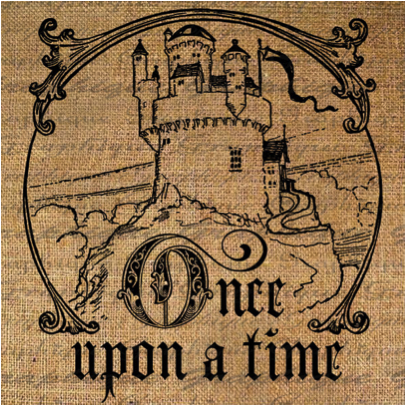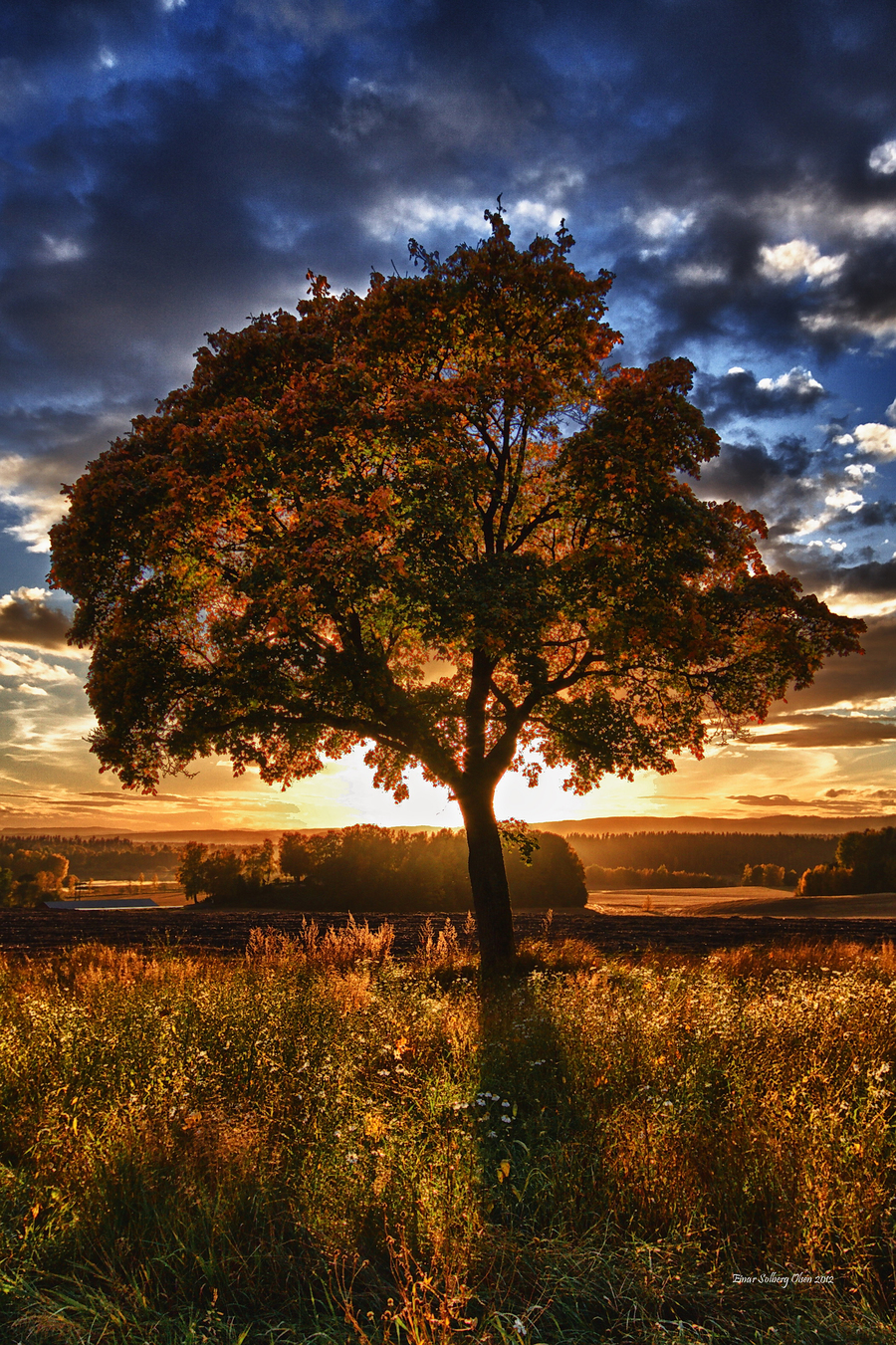ONCE upon a time, in a village across the sea, there lived a boy called Johann. He ran through the back alleys with several other urchins, stirring up trouble like dust. When there was enough food for his mother to make dinner, Johann would invariably arrive at that meal with dirt wiped across his face and holes ripped in his threadbare trousers. Very rarely was he in school, because he often got into fights there. So, perhaps it is not surprising that on Christmas morning, Johann did not find bundles of presents in his thin stocking.
There were two hard lumps in the grey rag Johann had hung by the fire the night before. Saint Nicholas had left him something, at least! Plunging his hand down the sock, Johann's fingers enclosed upon a hard object. He pulled out a block of wood with no special markings, or purpose, it seemed. Disappointed, Johann felt carefully in the toe of his stocking and pulled out a hard, dusty stump of coal. Nothing else dropped out of the shabby sock when he turned it upside down, though a tear dropped out of the corner of his eye. He had not been good enough for Saint Nicholas to give him any gifts. Blocks of wood and chunks of coal were hardly gifts after all. Nevertheless, Johann put the items in his capacious pockets and ran out to play.
After wandering streets filled with puddles and deep ruts, Johann's stomach gave a grunt, then a rumble. He sighed, having nothing to put in that hollow place. Longingly, he eyed the various workmen eating their midday meals. The blacksmith, the candlemaker, the shoemaker, and the carpenter were all supping, at the very least, on bread and cheese. Without realising it, Johann had shuffled closer to these men, if only to fill his nose with the smell of the pottage the carpenter was drinking slowly from his earthen mug. The man noticed the waif-like boy edging closer and called out in a gruff voice, "Boy! What are ye doing 'round here?"
Johann looked at his feet, not knowing what to say. The rough hand of the woodworker came down, none-too-gently, on his collar; a grey-grizzled face appeared before his downcast eyes. "I asked ye a question; I expect an answer." Johann shifted from one filthy foot to the other and mumbled, "Nothin'," hoping to be let go. "Not sufficient, mischief-maker," the carpenter hissed. "Here!" The big man thrust a broom into Johann's hand and pointed to a pile of shavings and dust. "Sweep that floor until every curl of wood is gone and I'll give ye your own bowl of stew." Johann started at this offer. Cautiously he looked at the bearded man to see if he was serious. The old man looked hard at him, then glanced at the wood chips. Johann began to sweep with more goodwill than he had ever had before. In a quarter of an hour the floor was swept smooth and clean. In a few minutes more, Johann's legs were dangling from a tall bench and he hungrily swallowed the bowl of promised stew.
"How would ye like to sweep my floor every evening after work?" the carpenter asked. Johann thought a moment. "Would I get a cup of soup every night?" The shadow of a smile brushed the woodworker's face. "Well, no. I can't promise tha'. But if I've a bit o' cheese, or bread, mayhap I could give ye that as wage." Johann needed no further convincing. "I'll come," he said. So, every evening before dark, Johann swept clean the carpenter's floor. He liked watching the man's big arms shave long curls of wood off of sleigh runners, cabinets, chairs, and tables. He became curious to know how the corners of cupboards were fitted so exactly together, or how a piece of wood could transform into the arm of a chair, with grooves and scroll work. But the magic Johann liked best of all was when the woodworker took a block of wood and turned it into a ladle, or a candle stick, or a figure of some sort. The animals and men spun from a single chunk of wood held captive Johann's thoughts before he drifted to sleep. He wanted to learn how to make such things, dreamed often that he had the tools and talents to do so.
One day, Johann screwed up his courage and asked the woodcarver, "Could you teach me to find the figure in the wood?" He hadn't meant to ask quite that way, but the very wording made the carver sit back and look at the boy. Yes, he would do. That scruffy, ragged boy knew that the figure was already inside the thick slices of pine and maple and ash. The wood had to speak to one's fingers about what lay inside; the carver couldn't just make the wood turn into a horse, or a man, or a bear. The bearded face slowly moved up and down in a nod. "I will loan ye my tools and answer your questions, but ye must find what lies inside the wood." Johann was delighted—and eager to begin. From his pocket he pulled out a chunk of wood, much-fingered and a bit rounded at the corners. "I have this block of maple that Saint Nicholas gave me at Christmas. Should I use that?" The carpenter nodded thoughtfully, and work began that very day.
In the weeks that followed, whenever Johann wasn't working around the shop—for he now helped the woodworker most of the day by handing him tools, sweeping, oiling tabletops, and polishing finished goods—he watched the woodcarver with rapt attention, or worked on his carving. The block had taken the rough shape of a four-footed animal with a big patch of wood still obscuring the head. Johann felt the edges of the wood and followed the contour of the knots. After much honing and careful whittling, a rough elk or reindeer could be discerned. It was carefully shaved and shaped by Johann's hand, by the strokes taught by the master carver, and by the words used to direct the boy. Near the autumn of the year, Johann sanded his reindeer, rounding off all the sharp, hard edges. Hours and days and weeks'-worth of work had been poured into the small figure. The woodworker nodded his approval, saying little when Johann showed him the finished piece.
"Do ye have anything else ye can bring to life like tha'?" the older man queried. The boy thought a moment and pulled out his piece of coal, still in one of his enormous pockets. "This?" he offered. "No, tha' will not do. But I will tell ye what you can do with that..." He showed Johann how to gather the right sorts of scraps to make soap, then they broke the coal into smaller pieces and made a little fire. Over that small fire swung the kettle and soap ingredients, needing to be boiled before it could fully become soap. When it was completed, Johann sold the soap to earn a few pence for a Christmas dinner for his family. It was not much money, but he could buy bread, cheese, and a bit of fruit to share. One would have thought Johann had provided a kingly feast the way his family exclaimed and enjoyed that meal.
Before bed, Johann pulled out his treasured reindeer. He knew what he wanted to do with it. Saint Nicholas always gave gifts, but he never seemed to receive any. Carefully, Johann put the deer near his stocking with a crudely lettered tag: For Saint Nicholas. He crawled into bed feeling glad and tired from his day's work and celebrating.
Early in the morning, Johann slipped out of bed and hurried to his stocking. It lay on the floor, filled with chocolate bits, a coin or two, a pear, some sweet rolls, and a block of wood. A neatly lettered note sat in the place of the reindeer: Dear Johann, it said, thank you for the gift you left me, it is beautiful. I see that you used my gifts from last year very well. If you will continue to work with your hands, use your gifts wisely, and share out of your small profits, you will prosper. Johann carefully stored the chocolate and coins, shared his sweet rolls with his two brothers, and saved the pear for his woodcarving friend. He fingered the block of wood, wondering what lived inside this one. Soon he would know. He set off for the workshop, eager to watch the carpenter work, to smell the fresh wood shavings, and to put his hands and head to the tasks before him. So, Johann grew and prospered, all because Saint Nicholas had given him a block of wood and a lump of coal.
—The End.





